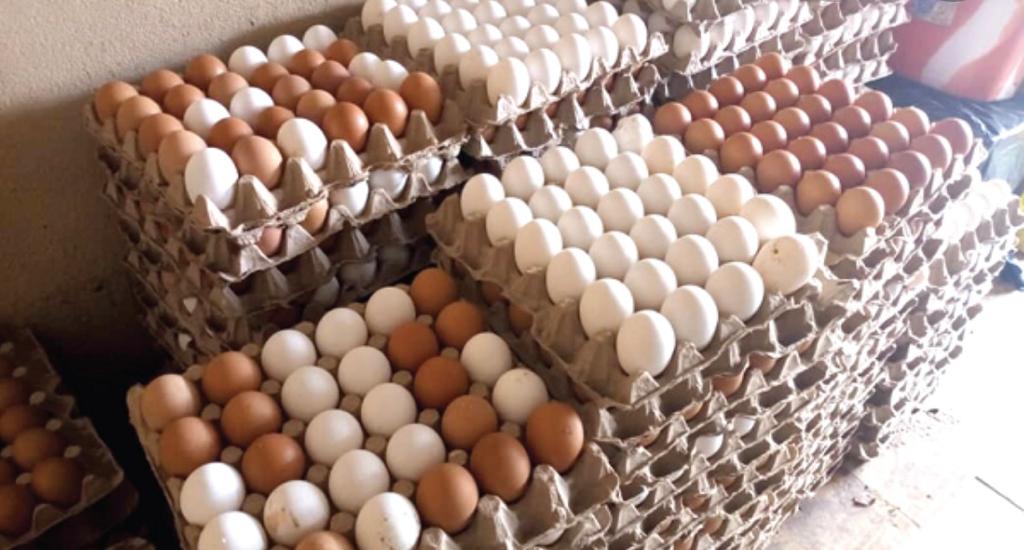The National Food Buffer Stock Company has urged egg producers to work out favourable agreements with schools amid monetary challenges that have affected demand.
Speaking in an interview, Hanan Abdul-Wahab, the Chief Executive Officer (CEO) said his outfit has worked with the Free SHS Secretariat to make the supply of perishable foodstuffs to schools easier.
“We have linked vegetable farmers to the schools and we have linked egg producers to the schools. We have also linked cold store operators to the schools, so they can be buying as and when they need it.
“For egg producers, what we are expecting them to also do is to sit with the headmasters. They should have a better arrangement with them so that they can give it to them on credit.”
Hanan Abdul-Wahab, the Chief Executive Officer (CEO)
In recent months, poultry farmers have complained about the lack of demand for their goods. The farmers have attributed this to the increase in the cost of products. The increase in the prices of feed and other production costs resulted in the increase in poultry products.
Mr. Abdul-Wahab indicated that the egg producers, among others, could supply the produce to schools and get paid later. According to him, the National Food Buffer Stock Company operates in a similar manner.
“We have over 1,000 licensed suppliers on the buffer stock and they are comfortable with the arrangement.”
The company also intends to get some Ghanaian companies with the needed resources and capacity to be able to supply chicken products, frozen fish and eggs.
“Currently, there is a proposal before the Minister of Education that he is reviewing to see how best we can do this effectively because it requires a lot of technology and logistics.”
Main Challenge of Poultry Farmers
Despite concerns about the drop in egg demand by school, the Poultry Farmers Association has said the industry’s main challenge is the high cost of production.
Mordecai Odoom, the General Secretary attributed this to the increase in the price of feed and the subsequent increase in the price of eggs.
“In December, it went well for us and just after December, people refused to buy the eggs. This is because the price of eggs had gone up, and they couldn’t afford the products.”
According to him, farmers are also compelled to reduce the prices of eggs. To address these challenges, Mr. Odoom said the government needs to make it easier to prepare feed for the poultry.
“For the things that we import like the soyabean, the taxes on them should be reduced. We can then afford to buy it and use it to prepare our feed…”
Charity Adupong, a marketer also noted that schools may not be as critical to their operations. She even said she stopped supplying schools with eggs because of their unreliability to pay.
“Private schools will pay you but for the public schools, it is always a struggle, so I stopped that. Even the hotels do the same thing for us, so I cut off all hotel supplies.”
Read also: GEA urges private sector to support women in business























